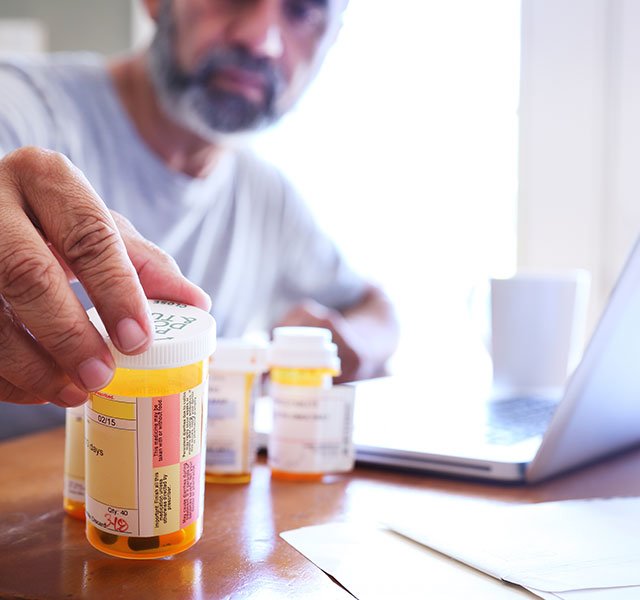If your doctor has recommended surgery to treat a condition affecting your heart, it’s natural to have questions about your recovery: How long will I be in the hospital? Are there any restrictions on my activity once I go home? How long until I feel normal again?
The answers will depend on the type of heart surgery you have and your overall health. The good news is that your care team will guide you through the recovery process.
“The key is to take the time necessary to recover so you heal properly and reduce your risk for future heart problems,” says Daizo Tanaka, M.D., a cardiothoracic surgeon at Henry Ford Health. “With healthy habits and regular follow-up visits to your doctor, you can extend the benefits of heart surgery for years to come.”
Here Dr. Tanaka explains what to expect during your hospital stay and the do’s and don’ts for recovery.
What To Expect While You Recover In The Hospital
There are a full range of cardiac surgery procedures that repair and restore heart function. How long you stay in the hospital depends on the type of surgery you have.
Immediately after surgery, you’ll receive care in the hospital’s intensive care unit (ICU). A care team of cardiac ICU specialists, respiratory therapists and nurses monitors you closely.
After two to three days, you’ll transition to intermediate care. Here you’ll begin physical and occupational therapy to help you transition to home. You’ll learn how to move through daily tasks while protecting your incision(s) and minimizing discomfort as you heal.
For standard open-heart surgery, you’ll stay in the hospital for five to seven days. You may need more time to recover after more complex surgery. After minimally invasive procedures, you’ll stay for one to three days.
Many patients continue their recovery at home. If you need additional therapy, your doctor may recommend care at a rehabilitation facility before returning home.
You may experience a variety of symptoms after heart surgery, including chest pain, constipation, muscle pain, loss of appetite, swelling and trouble sleeping. Medications can provide relief, which should improve over time.
After Heart Surgery – Do’s And Don’ts For Your Recovery
So, when will you be able to return to your normal routine? Again, the answer depends on the type of procedure you have. Your doctor will give you guidelines about any restrictions in your activity.
In general, you can resume your normal activities within one to two weeks after a minimally invasive heart procedure. For open-heart surgery, you can return to many activities within a month after surgery. Allow up to three months for proper recovery and healing.
“Many patients can resume working in an office or home office setting a month after open-heart surgery. You may be able to return in one to two weeks after a minimally invasive procedure,” says Dr. Tanaka. “If your work requires more physical exertion, discuss restrictions with your care team.”
To ensure the best long-term recovery after surgery, Dr. Tanaka recommends following these dos and don’ts.
Do's:
Take these steps to recover and heal:
- Be patient as you recover. While you may be anxious to get back to your normal routine, it’s important to take time for recovery. Gradually resuming your activities allows you to heal properly, prevent complications and maintain your heart health.
- Care for your incisions. You may have a large chest incision from open-heart surgery or several smaller incisions from a minimally invasive procedure. Follow your care team’s directions for keeping incisions clean and changing any dressings. Contact your doctor if you see signs of an infection, such as redness or swelling around incisions.
- Eat nutritious meals to help you heal: Your body needs extra calories to help the healing process after surgery. Eat lean proteins, vegetables and fruits, and whole grains to support your recovery.
- Recharge with cardiac rehabilitation. Your cardiac rehabilitation begins in the hospital. Your care team will provide information about nutrition, exercise and how to begin physical activity as you recover. Your doctor can recommend an at-home or outpatient program once you leave the hospital. These programs help restore your heart and muscular function, while minimizing your risk for future heart problems. Patients recovering from open-heart surgery typically attend up to three cardiac rehab sessions per week for three months.
- Reset your lifestyle habits. During recovery, take the opportunity to adopt healthy lifestyle habits. Eat a heart healthy diet, avoiding foods high in sodium and saturated fat. After completing cardiac rehabilitation, make exercise part of your daily routine. Stop smoking and limit alcohol. Stay connected with family and friends as you recover. These relationships can help you manage stress and improve your mood. Help your body heal by getting a good night’s sleep.
- Take your medicine. Set up a schedule to ensure that you take all prescribed heart medications as directed. Many people with heart disease continue taking medications such as statins throughout their lifetime. Continue taking medications to manage other health conditions, such as diabetes and high blood pressure (hypertension).
Don’ts:
Be sure to avoid these things that can hinder your recovery:
- Forget to schedule follow-up visits with your doctor. After heart surgery, you should have ongoing follow-up care with your cardiologist and primary care physician to monitor your heart function and overall health.
- Get behind the wheel too soon. If you’ve had open-heart surgery, side effects from pain medication or chest pain from your incision could interfere with your ability to drive. Avoid getting behind the wheel for four weeks.
- Ignore signs you need medical care. It’s important to pay attention to your body as you recover. Seek medical care if you experience symptoms like fever, shortness of breath or discharge from your incision(s). Contact your doctor if you hear a clicking noise from your chest bone or feel increasing chest pain as you move after open-heart surgery.
- Take on the heavy lifting. After open-heart surgery, avoid lifting anything over ten pounds for six weeks. This restriction allows your chest bone (sternum) and chest muscles to heal properly.
“After heart surgery, don’t be afraid to ask for help and guidance,” says Dr. Tanaka. “Our team includes cardiothoracic surgeons, cardiologists, nurses and dietitians, who are ready to help you through every step of recovery.”
To find learn more about heart surgery at Henry Ford or to find a heart surgeon, visit henryford.com, or call 844-725-6424 for Detroit and Southeast Michigan patients or 517-205-7605 for Jackson or South Central patients.
Dr. Daizo Tanaka is a cardiothoracic surgeon who sees patients at Henry Ford Hospital.



